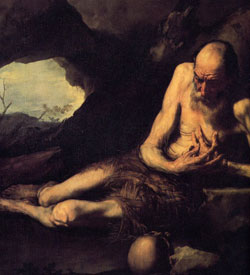We ask you, urgently: don’t scroll past this
Dear readers, Catholic Online was de-platformed by Shopify for our pro-life beliefs. They shut down our Catholic Online, Catholic Online School, Prayer Candles, and Catholic Online Learning Resources—essential faith tools serving over 1.4 million students and millions of families worldwide. Our founders, now in their 70's, just gave their entire life savings to protect this mission. But fewer than 2% of readers donate. If everyone gave just $5, the cost of a coffee, we could rebuild stronger and keep Catholic education free for all. Stand with us in faith. Thank you.Help Now >
Interview: 'Blessed' G.K. Chesterton?
FREE Catholic Classes
According to the ancient categories of the Church, we could define Chesterton as a 'confessor of the faith.'
Highlights
ROME (Zenit) - Gilbert Keith Chesterton (1874-1936) is well known for his clever and humorous writing, and his thought-provoking paradoxes. But he might also become known as a saint, if a proposal to launch his cause of beatification goes forward.
ZENIT spoke with Paolo Gulisano, author of the first Italian-language biography of the great English writer ("Chesterton & Belloc: Apologia e Profezia," Ediciones Ancora), about the origins of this proposal. Here, Gulisano explains why Chesterton might merit recognition as a saint.
ZENIT: Who is promoting this cause of beatification?
Gulisano: The cultural association dedicated to him, the Chesterton Society, founded in England in 1974 on the occasion of the 100th anniversary of the great author's birth, with the idea of spreading awareness of the work, thought and figure of this extraordinary personality. For years now, there has been talk of a possible cause of beatification, and a few days ago, during an international conference organized in Oxford on "The Holiness of G.K. Chesterton" -- with the participation of the best exponents in the field of Chesterton studies -- it was decided to go ahead with this proposal.
ZENIT: Why a beatification?
Gulisano: Many people feel there is clear evidence of Chesterton's sanctity: Testimonies about him speak of a person of great goodness and humility, a man without enemies, who proposed the faith without compromises but also without confrontation, a defender of Truth and Charity. His greatness is also in the fact that he knew how to present Christianity to a wide public, made up of Christians and secular people. His books, ranging from "Orthodoxy" to "St. Francis of Assisi," from "Father Brown" to "The Ball and the Cross," are brilliant presentations of the Christian faith, witnessed with clarity and valor before the world.
According to the ancient categories of the Church, we could define Chesterton as a "confessor of the faith." He was not just an apologist, but also a type of prophet who glimpsed far ahead of time the dramatic character of modern issues like eugenics. The English Dominican Aidan Nichols sustains that Chesterton should be seen as nothing less than a possible "father of the Church" of the 20th century.
ZENIT: What are his heroic virtues?
Gulisano: Faith, hope and charity: These were Chesterton's fundamental virtues. Moreover, he was innocent, simple, profoundly humble. Though having personally experienced sorrow, he was a chorister of Christian joy. Chesterton's work is a type of medicine for the soul, or better, it can more precisely be defined as an antidote. The writer himself had actually used the metaphor of antidote to define the effect of sanctity on the world: The saint has the objective of being a sign of contradiction and of restoring mental sanity to a world gone crazy.
ZENIT: What is the cultural, literary and moral contribution that Chesterton has left to British society and to Christianity?
Gulisano: When Pope Pius XI was informed of the death of the great writer, he sent a telegram of condolences through his secretary of state, Cardinal Eugenio Pacelli. In the telegram, he mourned the loss of a "devout son of the Holy Church, rich defender of the gifts of the Catholic faith." This was the second time in history that a Pontiff would attribute the title "defender of the faith" to an Englishman. Perhaps the secretary of state did not realize the ironic parallelism, which would have sparked in Gilbert one of his proverbial guffaws -- but the other Englishman was Henry VIII, the man who inflicted on the Church in England its gravest and deepest wound. Chesterton tried to again bring England, and also the world, closer to God, the faith, reason.
ZENIT: What is your opinion on all this?
Gulisano: Reading Chesterton, whether his novels or his essays, always leaves the reader with great serenity and a sense of hope, which certainly does not come from an immature and worldly optimistic vision of life -- which in reality couldn't be farther from the thought of Chesterton, who carefully denounced all the aberrations of modernity -- but rather from a Christian conception, the virile strength of the religious experience.
Chesterton's proposal is to take all of reality seriously, beginning with the interior reality of man, and to confidently make use of the intellect, that is to say, of common sense, in its original sanity, purified of every ideological incrustation.
One rarely reads pages that speak of faith, conversion and doctrine that are so clear and incisive, while being free of every sentimental or moralistic excess. This comes from Chesterton's attentive reading of reality; he knew that the most harmful consequence of de-Christianization has not been the grave ethical straying but rather the straying of reason, synthesized in this critique of his: The modern world has suffered a mental fall much greater than the moral one.
Faced to this reality, Chesterton chose Catholicism, and affirms that there are at least 10,000 reasons to justify this choice, every one of them valid and well-founded, but able to be boiled down to one reason: That Catholicism is true. The responsibility and the task of the Church then consist in this: In the courage to believe, in the first place, and therefore to denounce the paths that lead to nothingness or destruction, to a blind wall or a prejudice. An undoubtedly holy work, and the holiness of Gilbert Chesterton, which I hope the Church will recognize, already shines and sparkles before the world.
[Translation by Kathleen Naab]
Join the Movement
When you sign up below, you don't just join an email list - you're joining an entire movement for Free world class Catholic education.

-

-
Mysteries of the Rosary
-
St. Faustina Kowalska
-
Litany of the Blessed Virgin Mary
-
Saint of the Day for Wednesday, Oct 4th, 2023
-
Popular Saints
-
St. Francis of Assisi
-
Bible
-
Female / Women Saints
-
7 Morning Prayers you need to get your day started with God
-
Litany of the Blessed Virgin Mary
Vatican City Leads the Way in Ethical Artificial Intelligence Regulation
-

Rising from the Ashes: Southern California's Wildfire Tragedy Sparks Resilience and Hope in the ...
-

Catholic Medical Group Challenges Biden Administration Over Emergency Room Abortion Mandate
-
FDA Proposes New Front-Facing Nutrition Labels to Promote Healthier Choices
-
Introducing 'Journey with the Messiah' - A Revolutionary Way to Experience the Bible
Daily Catholic
 Daily Readings for Wednesday, January 15, 2025
Daily Readings for Wednesday, January 15, 2025 St. Paul the Hermit: Saint of the Day for Wednesday, January 15, 2025
St. Paul the Hermit: Saint of the Day for Wednesday, January 15, 2025 Prayer for a Blessing on the New Year: Prayer of the Day for Tuesday, December 31, 2024
Prayer for a Blessing on the New Year: Prayer of the Day for Tuesday, December 31, 2024- Daily Readings for Tuesday, January 14, 2025
- St. Felix of Nola: Saint of the Day for Tuesday, January 14, 2025
- St. Theresa of the Child Jesus: Prayer of the Day for Monday, December 30, 2024
![]()
Copyright 2024 Catholic Online. All materials contained on this site, whether written, audible or visual are the exclusive property of Catholic Online and are protected under U.S. and International copyright laws, © Copyright 2024 Catholic Online. Any unauthorized use, without prior written consent of Catholic Online is strictly forbidden and prohibited.
Catholic Online is a Project of Your Catholic Voice Foundation, a Not-for-Profit Corporation. Your Catholic Voice Foundation has been granted a recognition of tax exemption under Section 501(c)(3) of the Internal Revenue Code. Federal Tax Identification Number: 81-0596847. Your gift is tax-deductible as allowed by law.







 Daily Readings for Wednesday, January 15, 2025
Daily Readings for Wednesday, January 15, 2025 St. Paul the Hermit: Saint of the Day for Wednesday, January 15, 2025
St. Paul the Hermit: Saint of the Day for Wednesday, January 15, 2025 Prayer for a Blessing on the New Year: Prayer of the Day for Tuesday, December 31, 2024
Prayer for a Blessing on the New Year: Prayer of the Day for Tuesday, December 31, 2024

